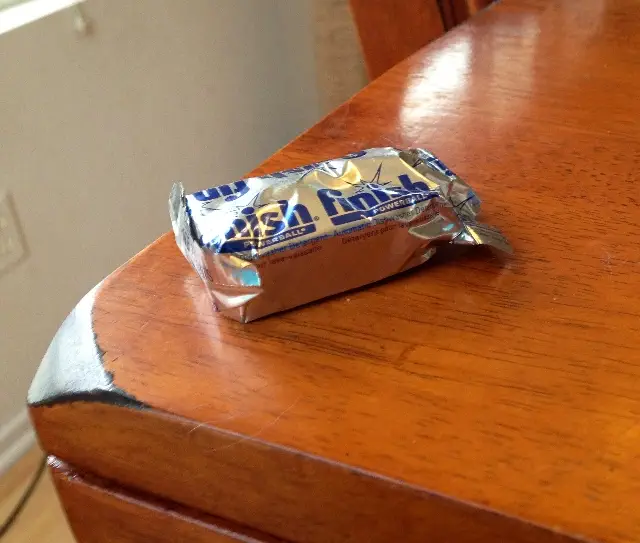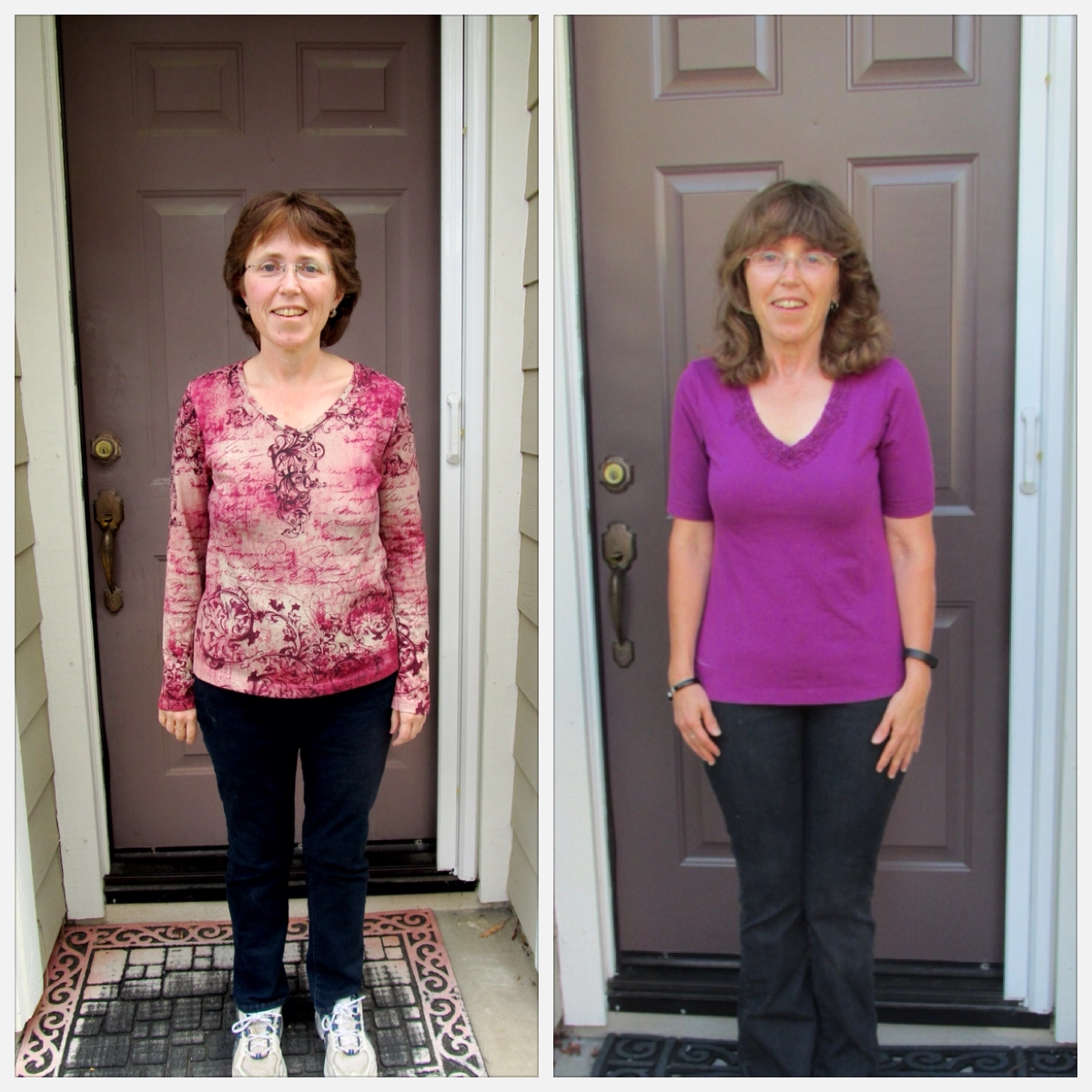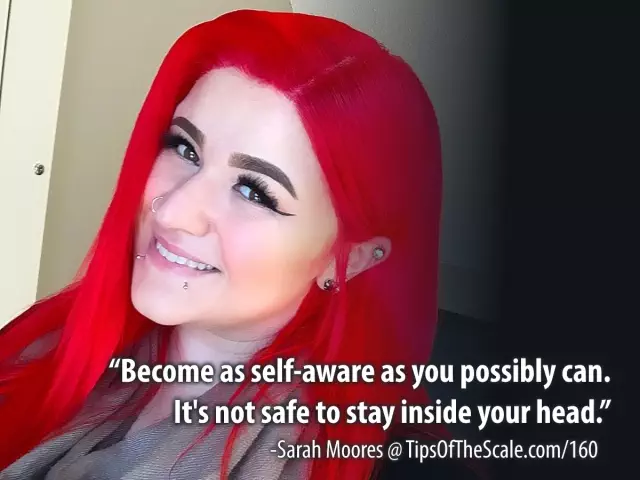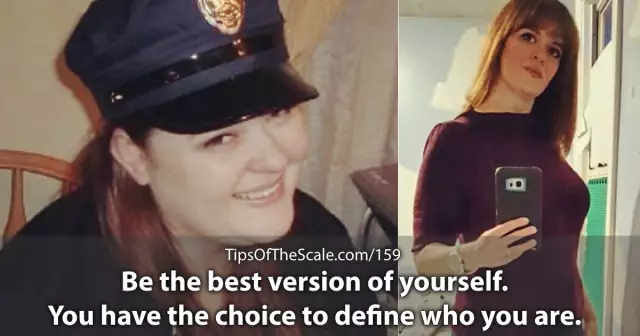Weight Gain Background and Contributing Factors
Karen first began putting on weight in the first grade. She recalls being the only obese kid at her school, and that experienced bullying until her freshman year of high school because of her weight.
Karen’s family ate a lot of fast food when she was growing up, and she shares that it was harder to get good nutrition information back in that pre-internet era. Karen lost some weight in high school from jogging as a stress-reliever, but regained once she was in college.
Karen remembers working all day at a physical job, but then still eating junk food in her lunches, and wondering why she wasn’t losing weight.
“In the back of my mind, I kind of knew that it probably wasn’t cool to eat…a whole package of Snackwells.”
How Being Overweight Impacted Karen’s Life
From college on, Karen had a pattern of yo-yo dieting. After being married, she was diagnosed with Hashimoto’s thyroiditis in her early 30s. She was ready to start a family and was 60 pounds (27.3 kg) overweight at the time. Karen knew the risks involved with having a pregnancy while at that weight.
Karen joined weight watchers and in about 15 months she had lost 60 pounds and got pregnant soon thereafter. She had a healthy pregnancy and delivery, but Karen didn’t lose all the baby weight. A counselor Karen saw at that time suggested that she might be allergic to wheat and sugar.
“I just wasn’t ready to accept that idea yet.”
After reading No Dieting by Becky Lou Jackson, Karen was able to finally lose the baby weight through eating planned moderate meals with low sugar.
Karen became a single mom when her daughter was 4. Karen is a stress eater, and her weight skyrocketed during the initial years of her divorce and shared custody of her daughter.
“I ate to numb my feelings.”
Karen tried Weight Watchers again, and says that overall she has probably tried their program 10-15 times, since it worked for her earlier. At this time, Karen’s health insurance company began to chart her blood work every year. Through this blood testing, Karen noticed that her hemoglobin A1c was going up, and her weight along with it. She knew she was getting close to being diagnosed with pre-diabetes.
“I didn’t want to face that, and I knew it.”
In early 2011 one of Karen ‘s co-workers just dropped dead suddenly. He was fairly healthy and his death hit Karen really hard. At the time Karen was 46 and getting out of breath while walking clients the 1/3-1/2 mile distances between buildings at work.
Karen says she began to wonder if her weight was going to impact her career—could she get a promotion while she was this heavy and unhealthy?
Starting The Weight Loss Journey
Due to her periods of yo-yo dieting in the past, Karen knew there were resources to support her weight loss endeavors, but this time Karen wanted to also be sure that she had a plan in place for maintaining her losses as well.
She discovered the book Refuse to Regain by Barbara Berkeley, and recommends that for everyone on a weight loss journey. She began this period of her life needing to lose 70 pounds (31.8 kg) off her 5’1” frame, and felt like this was such a large amount of weight to lose that at the time she said:
“I just cannot look too far ahead, because I’m going to get freaked out.”
Karen began a commercial weight loss plan that was fairly expensive. Even though it was costly, Karen knew she was only going to be on this plan for a certain length of time, and that she was financially as well as emotionally committed.
Her plan assigned her a health coach, who she met with weekly for accountability, and Karen also made sure her own doctor was on board with the plan. This time around during weight loss Karen found it helpful that she knew of weight loss blogs to read, podcasts to listen to, and what books she wanted to re-read.
Karen lost 50 pounds (22.7 kg), then things slowed down. Because Karen was really after maintenance this time around, and she knew what hadn’t worked for her in the past, she re-read Refuse to Regain. One suggestion from that book really stood out to Karen and she decided to follow it: for the first 90 days post weight – eat no processed food.
Food Sensitivities
Along in her journey, Karen says that she began subconsciously to identify her trigger foods, and they came back to what that counselor had told her over 10 years prior—sugars and grains.
Karen shares that she had to grab her kitchen counter because she though she was going to “pass out” when she realized that she needed to get off wheat for good. This explained to her why pizza had always been such a trigger food, as it has sugar in the tomato sauce, and wheat in the crust.
Karen says that she gets achy joints, headaches or bloating when she eats foods that contain wheat or sugar, symptoms which serve as a good physical reminder to not eat those foods. Finding preservatives and additives that are in foods that can cause triggers or physical reactions is research Karen encourages everyone to do for their own body, as it is empowering information.
Disordered Eating and Mental Work
Karen ended up losing the 70 pounds (31.8 kg) she set out to lose, and now is focused on the mental aspects of a healthy relationship with food.
“I’m always just one meal away from a binge.”
Karen uses an app by Alan Standish to help her identify her triggers for binge eating. Karen puts her binge eating on the same level as having a chronic disease, and knows she will have to deal with it her whole life. Framing it in this way makes binges easier to manage, and it also helps when she can forgive herself for her lapses.
Karen used the website 23andme.com for gene testing and found out that she has 5 gene codes that code for obesity. This made Karen feel like she just needed to work harder to overcome her genotype. Karen deals with her propensity for being overweight the same as she might think about another genetic component, like her height.
She points out that we don’t usually remain constantly upset with ourselves over our height, but metabolic syndrome and obesity can be reversed or fought against. Karen used to binge and eat in secret, but now says:
“I see myself as either a survivor, or as my disease is in remission…”
In practical terms for maintenance, Karen shares that she needs to prepare ahead when there’s lots of “opportunities to binge” like on holidays and vacations. For Halloween, she might pass out a little candy from their house, but she keeps all excess candy of her daughter’s in a bag in the garage.
“You run into food pushers, always at the holiday.”
For Thanksgiving, the bulk of the meal—meat, vegetables, fruit—is all fine. At Christmas Karen sometimes brings a dish she is sure she can eat, and then eats dishes from the rest of the meal that fit in with her plan.
Karen uses the fact that her doctor has asked her to stay away from certain foods when she has to talk to family and friends about why she is not eating something at a gathering. Karen stopped being a people pleaser, and that helped her set clearer boundaries with food. Working with a counselor also really helped Karen with boundary setting.

Challenges Karen Faced Along The Way
Karen says the most dangerous thing is her own mind—thinking ‘oh, poor me!’ or ‘you should let loose and eat those foods…’ Time management can also be a struggle, juggling cooking 98% of her food at home, getting to the gym, and getting in her 10,000 steps a day.
Another challenge is dealing with the unknown and unpredictable in life, and the resulting stress—while Karen wants to eat in times of stress like that, she is getting better not turning to food.
What Karen Learned About Food, Exercise, and Herself
Mental clarity has really helped Karen identify her food triggers. She feel that it’s never too late for anyone to learn to set boundaries with food.
Karen looks to weight maintainers who are 5-10 years down the road from losing their weight, and gets advice from them. It was liberating for Karen to accept that eating this way is lifelong and there is no end to the journey.
“I was able to leave some of the…habits, or the loops I was in behind me”
Karen also discovered that going through menopause didn’t automatically mean you had to gain weight. Taking a big chance and being willing to fail is important on a journey—if something you are doing now isn’t working, you need to try something else. It’s important to be willing to change.
Karen’s Advice For Your Journey
Seek out help.
“We are definitely stronger together.”
Even if you get advice from someone that seems really challenging, you can research what it might mean for your health.
Karen is now 100% in maintenance and eats a paleo/primal diet. The paleo template avoids processed foods, which is good because Karen has noticed food additives make her binge eating worse.
Karen walks 5-6 miles a day and is working to keep up her bone density and add some muscle mass, so she now has gym goals. Another goal is that next year she wants to attend the PaleoFX conference.
Resources Discussed In This Podcast
- Refuse to Regain by Barbara Berkley [ Amazon ]
- The Hunger Fix by Dr. Pamela Peeke [ Amazon / iTunes / iTunes Audiobook ]
** check out my interview with Dr. Peeke here ** - The Paleo Solution by Robb Wolf [ Amazon / iTunes ]
- Everyday Paleo workshops with Sarah Fragoso
- America’s Angriest Trainer podcast with Vinnie Tortorich and Anna Vocino (hilarious and rated R)
- Progress Not Perfection podcast with Alan Standish
- Half Size Me podcast with Heather Robertson
** check out my interview with Heather Robertson here ** - Rich Roll podcast
On Karen’s Workout Playlist
Contacting Karen
- Website: gardengirlkp.blogspot.com
- Twitter: @gardengirl_kp
- Instagram: @gardengirl_kp
- Facebook: fb.com/gardengirlweightmaintainer
- Google+: +GardengirlkpBlogspot
- Pinterest: gardengirlkp







You must be logged in to view comments.